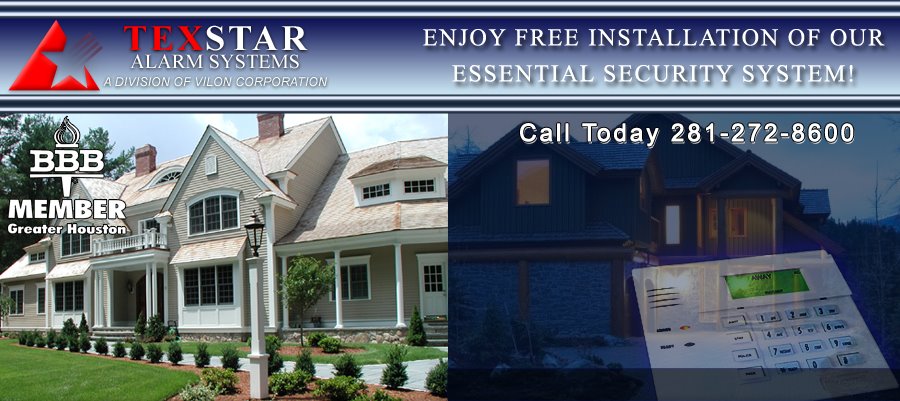
A vital part of securing your home is the installation of a home security system. Home security systems can vary greatly in the levels of protection that they provide. Whether you like to do it yourself, or are hiring a professional security installation company, there are critical elements that must be considered that are covered here.
First you need to decide what level of coverage your budget allows. If you agree to a longer term monitoring agreement, most alarm companies will offer a free or reduced installation of their basic package which includes 1 control panel, 1 keypad, 3 door contact, 1 motion detector, 1 siren, and 1 yard sign. For many homeowners, this is a very cost effective way to have a basic system installed. However, if you are willing to spend a little additional, you can really beef up your security by adding devices and contact points.
The areas of the home to put the most emphasis on is the side and back of the house. Burglars look to find the easiest point of entry where they will not get caught. When a burglar approaches a home, they will usually ring the doorbell to see if anyone answers or stirs in the home. If no one answers the door, they will kick the door in and close it behind them. It is hard to tell that anything is going on from the street. But your neighbors can easily tell that something is not quite right if they were to see a broken window on the front of your home.
Most burglaries occur through the doors. The doors most often targeted are the back and side doors. Windows are also easy points of entry. Contacting all of the accessible windows will provide a warning of possible intrusion if someone were to raise a window at night while you were at home. If you are mostly interested in protecting your property while you are away however, it may be more cost effective to use motion and glass break detectors. This is because on most windows it is possible to simply break the window and climb in. If the window is not raised, the contact will not be triggered.
A critical element in the design of a home security system is an interior trap. The most common interior trap is a motion detector placed in the living area as a way of catching an intruder that got by the perimeter contacts. Pet motion detectors are available which filter out animals but still pick up humans. However, these pet motions are absolutely not recommended for homeowners with cats. By jumping so quick, a cat fools the motion into thinking that it is a person standing up. If you contact an interior bedroom or closet door that is kept shut when you are away, this could be a good alternative. When the burglar opens the interior contacted door, the alarm will sound. This interior contact is off when the alarm is armed in the stay mode so that you can still freely open and close that door without setting the alarm off.
Homeowners with animals often request glass break detectors for their home security system. Before spending your hard earned money on glass break detectors, it is important to understand their limitations and what they were truly designed to cover. A glass break detector is a line of sight product. It is listening for the sound and vibration of a breaking glass, and it has to occur within milliseconds of each other. This dual technology is to cut down on false alarms. Faux wood blinds, shutters, and heavy draperies will greatly reduce or render the glass break detector totally ineffective. Common places where a glass break can be effective in a standard home include protecting the glass above the master bath tub, and the back door glass.
Another item for consideration if you are going to have your home security system monitored is to add a cellular back up to the system. The cell back-up is designed to send in the alarm signal if the burglar decides that they are going to cut the phone line. It is an additional cost due to the cost of the monthly airtime and cost of the unit, but it is the ultimate as far as alarm communications are concerned.
In the final analysis, the minimum home security system installation should include contacting all exterior doors and an interior trap of some form or another. Since all of the keypads on the market today are easy to operate, you should never be afraid of using your alarm system. As we tell our customers all the time at my company, "It will not do you any good sitting on the wall".


